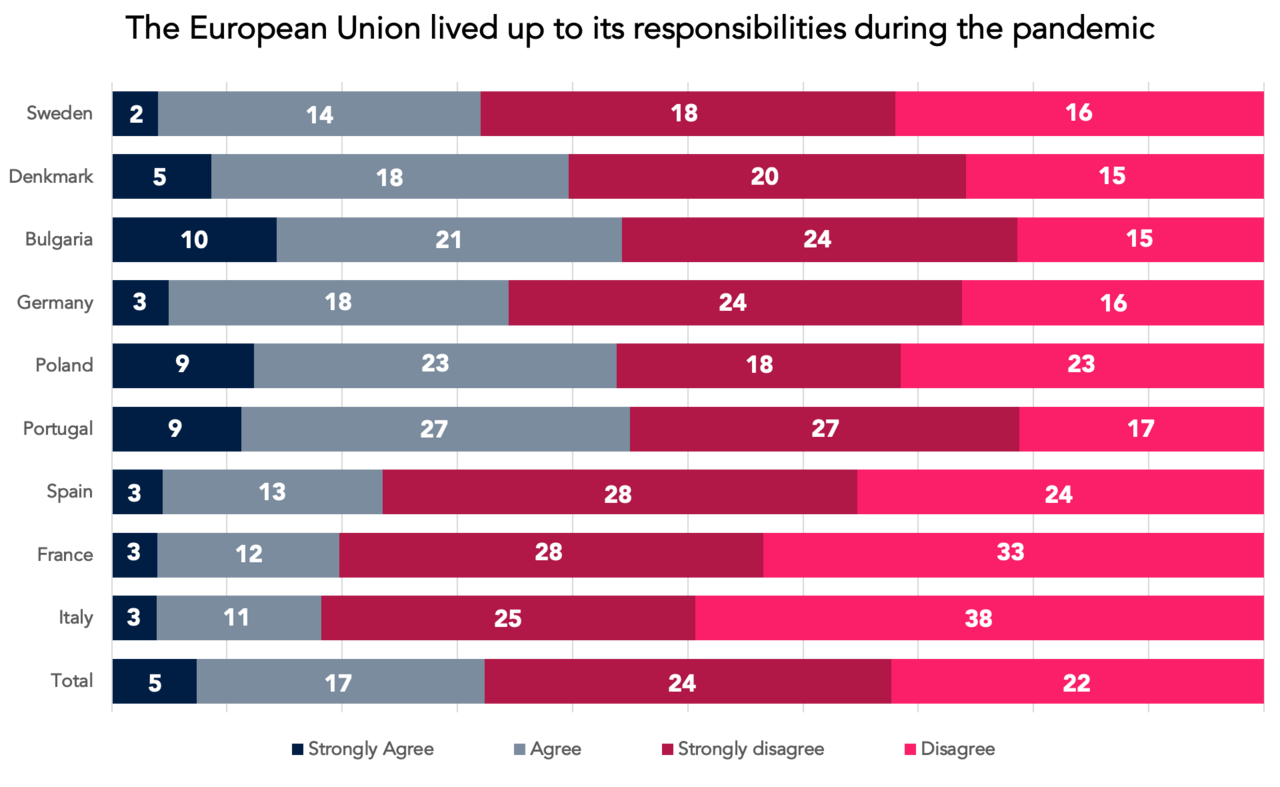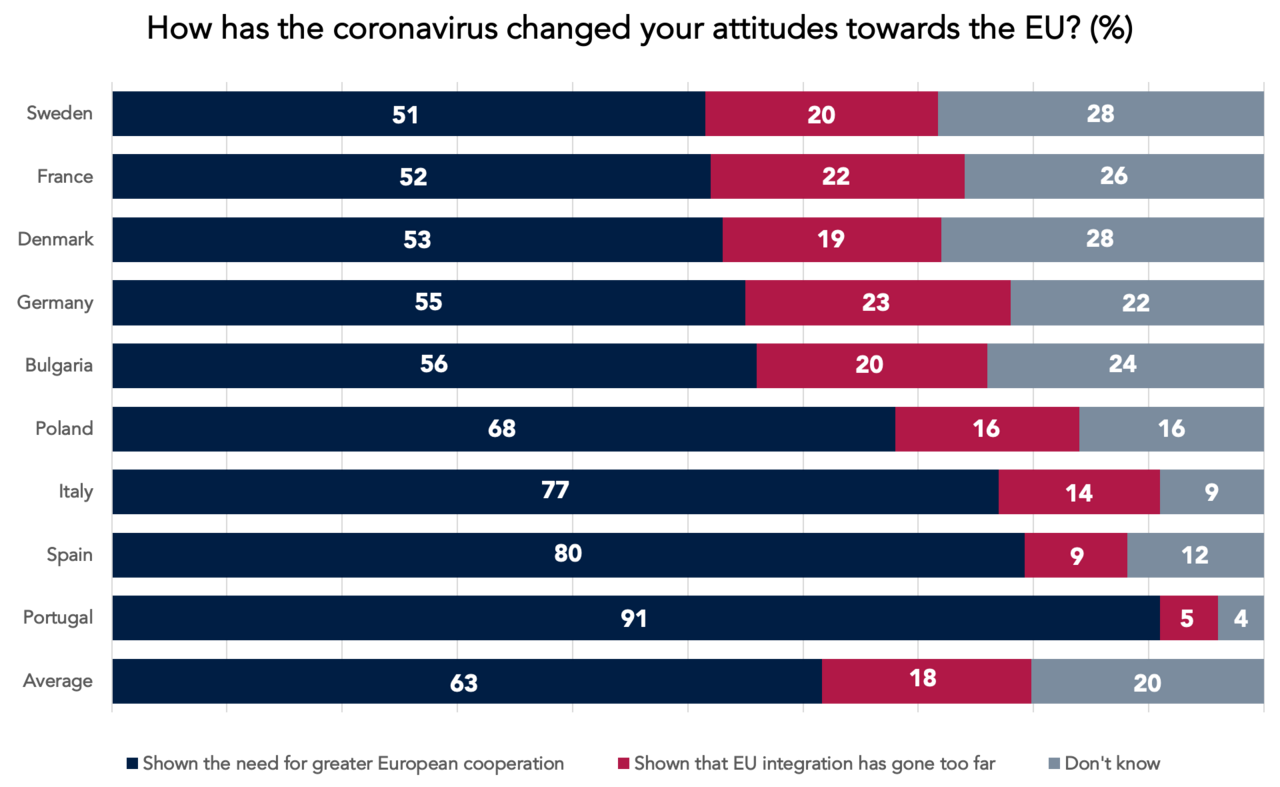Every week, surveys from all across the EU tell us what Europeans are thinking, feeling and talking about. In our new segment, eupinions echo, we collect these voices and play them back to you. Each week, we highlight one survey of particular interest in a short blogpost and share daily new survey results via our website and our twitter channel.
The COVID-19 pandemic has confronted the European Union with challenges of previously unknown proportions. Yet, while many Europeans regard the crisis work of their countries' governments as generally favourable, the same can not be said about the EU as a whole. A new survey of nine EU countries by the European Council on Foreign Relations shows that roughly half of EU citizens (46%) think that the EU has not lived up to its responsibilities during the pandemic, with a similar proportion (47%) going so far as to say that the EU has been irrelevant during the crisis. In contrast, only 22% of Europeans held a positive view about the EU's crisis management during the pandemic.




